Эллен Глазгоу - Barren Ground
Здесь есть возможность читать онлайн «Эллен Глазгоу - Barren Ground» весь текст электронной книги совершенно бесплатно (целиком полную версию без сокращений). В некоторых случаях можно слушать аудио, скачать через торрент в формате fb2 и присутствует краткое содержание. Жанр: Классическая проза, на английском языке. Описание произведения, (предисловие) а так же отзывы посетителей доступны на портале библиотеки ЛибКат.
- Название:Barren Ground
- Автор:
- Жанр:
- Год:неизвестен
- ISBN:нет данных
- Рейтинг книги:3 / 5. Голосов: 1
-
Избранное:Добавить в избранное
- Отзывы:
-
Ваша оценка:
- 60
- 1
- 2
- 3
- 4
- 5
Barren Ground: краткое содержание, описание и аннотация
Предлагаем к чтению аннотацию, описание, краткое содержание или предисловие (зависит от того, что написал сам автор книги «Barren Ground»). Если вы не нашли необходимую информацию о книге — напишите в комментариях, мы постараемся отыскать её.
Barren Ground — читать онлайн бесплатно полную книгу (весь текст) целиком
Ниже представлен текст книги, разбитый по страницам. Система сохранения места последней прочитанной страницы, позволяет с удобством читать онлайн бесплатно книгу «Barren Ground», без необходимости каждый раз заново искать на чём Вы остановились. Поставьте закладку, и сможете в любой момент перейти на страницу, на которой закончили чтение.
Интервал:
Закладка:
More than thirty years ago. More than thirty years of effort and self-sacrifice-for what? Was there an unfulfilled purpose, or was it only another delusion of life? The moaning wind plunged down on the dead leaves and drove them in eddying gusts over the fields, over the road, and into the open grave. It seemed to her that the sound of the autumn wind, now rising, now sinking, now almost dying away, was sweeping her also into the grave at her feet. She had no control over her memories; she had no control over her thoughts. They stirred and scattered, as aimless, as inanimate, as the dead leaves on the ground. Memories that had outlived emotions, as empty as withered husks, were released from their hidden graves, and tossed wildly to and fro in her mind. Little things that she had forgotten. Little things that mean nothing when they happen and break the heart when they are remembered. She felt no sorrow for Jason. He was nothing to her; he had always been nothing; yet her lost youth was everything. What she mourned was not the love that she had had and lost, but the love that she had never had. Impressions drifted through her thoughts, vague, swift, meaningless, without form or substance…
Out of this whirling chaos in her mind, Jason's face emerged like the face of a marionette. Then dissolving as quickly as it had formed, it reappeared as the face of Nathan, and vanished again to assume the features of Richard Burch, of Bob Ellgood, and of every man she had ever known closely or remotely in her life. They meant nothing. They had no significance, these dissolving faces; yet as thick and fast as dead leaves they whirled and danced there, disappearing and reassembling in the vacancy of her thoughts. Faces. Ghosts. Dreams. Regrets. Old vibrations that were incomplete. Unconscious impulses which had never quivered into being. All the things that she might have known and had never known in her life.
The minister's voice ceased at last. Since he had never seen Jason he had trusted, perhaps imprudently, to his imagination, and Dorinda wondered how he could have found so much to say of a life that was so empty. She bent her head in prayer, and a few minutes afterwards, she heard the thud of earth falling from the spade to the coffin. The red clay fell in lumps, dark, firm, heavy, smelling of autumn. It fell without breaking or scattering, and it fell with the sound of inevitableness, of finality. For an eternity, she heard the thuds on the coffin. Then the voice of the minister rose again in the benediction, and she watched, as in a trance, John Abner bring the two flat stones from the edge of the ploughed field and place them at the head and foot of the grave.
She turned away, and became aware presently that the clergyman had followed her and was speaking. "It is a sad occasion, Mrs. Pedlar," he said, and coughed because her blank face startled the end of his remark out of his mind. "A sad occasion," he repeated, stammering.
"All funerals are sad occasions," she responded, and then asked: "Will you come to the house for a cup of coffee?"
She hoped he would refuse, and he did refuse after a brief hesitation. He had a sick call to make near by, and already the day was closing in. While he held her hand he spoke with unction of her generosity. Wherever he went, he said, he heard of her good works. This, he realized, was a concrete example of her many virtues, and he reminded her hopefully that the greatest of these is charity. Then he went off in his Ford car, and Dorinda stood where he had left her and stared after him as if she were rooted there in the damp periwinkle.
"The wind is cutting. Come away," John Abner urged, taking her arm. "Funerals are always depressing, but you did what you could." It was true. She had done what she could, and she realized that this, also, would not make any difference.
She walked away very slowly because she found that her knees were stiff when she attempted to move. It was while she was treading on the spongy earth at the edge of the ploughed field that she saw life crumble like a mountain of cinders and roll over her. She was suffocated, she was buried alive beneath an emptiness, a negation of effort, beside which the vital tragedy of her youth appeared almost happiness. Not pain, not disappointment, but the futility of all things was crushing her spirit. She knew now the passive despair of maturity which made her past suffering seem enviable to her when she looked back on it after thirty years. Youth can never know the worst, she understood, because the worst that one can know is the end of expectancy.
Smothered in this mountain of cinders, she walked to the old buggy and stepped between the wheels to the front seat. A minute later they drove past the barn where she would have killed Jason if her hand had not wavered. Past the house where she had felt her heart crouching in animal terror before the evil old man. Through the woods where the wet boughs had stung her face. Rain. Rain. The sound of rain beating into her memory. Rain on the shingled roof, pattering like the bare feet of children. Rain on the hunched box-bush and the white turkeys. Rain on the sandy road. Rain on the fork of the road, on the crushed leaves smelling of autumn. Everything was before her then. There is no finality when one is young. Though they had been unendurable while she had passed through them, those years of her youth were edged now with a flame of regret. She felt that she would give all the future if she could live over the past again and live it differently. How small a thing her life appeared when she looked back on it through the narrow vista of time! It was too late now, she knew, for her youth was gone. Yet because it was too late and her youth was gone, she felt that the only thing that made life worth living was the love that she had never known and the happiness that she had missed.
When she reached the house she went to her room in silence, and sank on a couch in front of the fire as if she were sinking out of existence. Fluvanna, finding her there a little later, helped to undress her and went to tell John Abner that she was ill enough to have the doctor summoned. Hearing her from the hall, Dorinda did not take the trouble to contradict. The doctor did not matter. Illness did not matter. Nothing mattered but the things of which life had cheated her.
Lying there in the shadowy firelight of the room, she heard the wind wailing about the corners of the house and rustling in the old chimneys. She saw the crooked shape of a bough etched on the window-panes, and she listened for the soft thud of the branches beneath the sobbing violence of the storm. Though the room was bright and warm, a chill was striking through her flesh to the marrow of her bones. Shivering by the fire, she drew the blankets close to her chin.
The door opened and John Abner came in. "Can't you eat any supper, Dorinda?"
Behind him, in the glare of lamplight, she saw Fluvanna with a tray in her hands. The blue and white china and the Rebekahat-the-well tea-pot lunged toward her.
"No, I can't eat a mouthful." Then changing her mind, she sat up on the couch and asked for tea. When they poured it out for her, she drank three cups.
"You got a chill, Dorinda. It was raw and wet out there."
"Yes, I got a chill," she replied; but it was the chill of despair she meant.
"The wind is rising. We are going to have a bad storm. I suppose I'd better go out again and take a look."
After he had gone, she lay there still shivering beneath the blankets, with her eyes on the low white ceiling, where the firelight made shimmering patterns. Outside, the wind grew louder. She heard it now at a distance, howling like a pack of wolves in the meadow. She heard it whistling round the eaves of the house and whining at the sills of the doors. All night the gusts shook the roof and the chimneys, and all night she lay there staring up at the wavering shadows of the flames.
Читать дальшеИнтервал:
Закладка:
Похожие книги на «Barren Ground»
Представляем Вашему вниманию похожие книги на «Barren Ground» списком для выбора. Мы отобрали схожую по названию и смыслу литературу в надежде предоставить читателям больше вариантов отыскать новые, интересные, ещё непрочитанные произведения.
Обсуждение, отзывы о книге «Barren Ground» и просто собственные мнения читателей. Оставьте ваши комментарии, напишите, что Вы думаете о произведении, его смысле или главных героях. Укажите что конкретно понравилось, а что нет, и почему Вы так считаете.

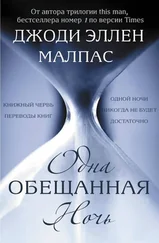

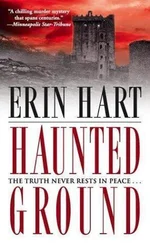

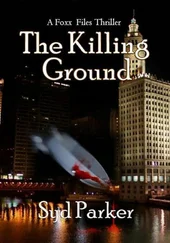

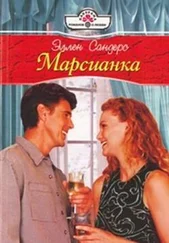
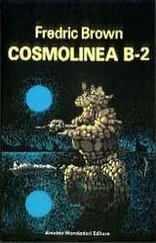
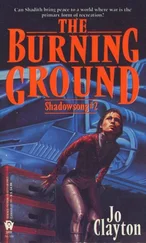
![Эллен Дедженерес - Кроме шуток [Как полюбить себя, продать дуршлаг дорого, прокачать мозг с помощью телешоу и другие истории от Эллен Дедженерес] [litres]](/books/384873/ellen-dedzheneres-krome-shutok-kak-polyubit-sebya-p-thumb.webp)

